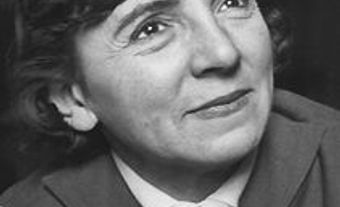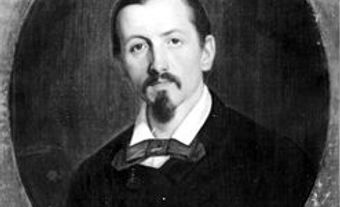Walter Boudreau. Composer, saxophonist, conductor (born on 15 October 1947 in Montreal, Qc). He studied piano for several years in Sorel. and later saxophone with Doug Michaud in Montreal. However, he was initially self-taught as a composer. At 15, he became a member of a jazz band conducted by Arthur Romano.
Education and Early Career
Walter Boudreau studied piano for several years in Sorel and later saxophone with Doug Michaud in Montreal. However, he initially self-taught himself as a composer. At age 15, he became a member of a jazz band conducted by Arthur Romano. He settled in Montreal in 1966, where he directed his own jazz group. He also led various other jazz groups at the Youth Pavilion of Expo 67, where he met Raoul Duguay. With the latter, as well as with the Quatuor de jazz libre du Québec and other musicians, he founded Infonie in 1968. Infonie was a multi-media ensemble whose repertoire was a mixture of classical, pop, contemporary and avant-garde music. The group, which numbered as many as 22 musicians, performed throughout Quebec. They also performed at the University of Toronto, and at the NAC. Boudreau appeared in the films La Nuit de la poésie (1970) and L'Infonie inachevée (1972), and published Le Manifeste de l'Infonie: le ToutArtBel (Montreal 1970), which was published by Duguay. Segments from the latter piece inspired Boudreau's Ysengouronnie.
While working with Infonie, Boudreau studied analysis 1968–70 with Bruce Mather at McGill University. Between 1969 and 1973, he studied analysis and composition with Gilles Tremblay at the CMM and with Serge Garant at the University of Montreal. He received several grants from the Canada Council. This enabled him to attend summer courses given by Pierre Boulez in Cleveland in 1971 and by Mauricio Kagel, György Ligeti, Karlheinz Stockhausen and Iannis Xenakis in Darmstadt in 1972.
That same year, Infonie became an octet. After studying in France with Xenakis in 1973–74, Boudreau transformed it into the Quatuor de saxophones de l'Infonie. In 1982, it became the Montreal Saxophone Quartet. The group included Simon Stone (soprano), René Masino (alto), David Clark (tenor) and Boudreau (baritone). The ensemble presents a varied, though mainly contemporary repertoire. The quartet toured in 1977–78 in the Maritimes and in 1981 in British Columbia. They were sponsored by the YMC and the Festival Concert Society. The ensemble also performed at the World Saxophone Congress in Chicago (1979), and in Montreal, Quebec City and Toronto, as well as on CBC radio and TV.
Between 1973 and 1976, Boudreau worked with the research team Informatique-musique at the Université de Montréal. After winning a first prize in the 1973 CBC National Radio Competition for Young Composers (CBC radio competitions), the second version of Variations I was presented on a CBC broadcast in 1974. A final, hour-long version (called Variations) was conducted by Boudreau at a Société de musique contemporaine du Québec (SMCQ) concert in 1976. Gilles Potvin from Le Devoir described it as “a fantasies-filled sound labyrinth .” Potvin emphasized the composer's “unlimited imagination.”
Career Works
The majority of Boudreau's works are commissions, notably by the McGill Percussion Ensemble (1977), the Vancouver New Music Society (1978), the Ensemble d'ondes de Montréal (1980), the Ensemble de cuivres d'Aquitaine, France (1982) and I Musici de Montréal (1985).
In 1982, the Canadian Music Council awarded him the Jules Léger Prize for New Chamber Music for his L'Odyssée du soleil.
He was a member of the Groupe des sisses with Michel-Georges Brégent, Michel Gonneville, Denis Gougeon, Alain Lalonde and John Rea. He participated in the composition and the creation of collective works such as La Folia (1984) and Musique des jardins sans complexe (1987). This last work was used to make the short film Fanfares ( Rhombus Media 1988).
In 1991, Boudreau’s composition, Golgot(h)a, was awarded the Grand Prix Paul-Gilson by the Communauté des radios publiques de langue française. The piece notably uses a text written by Raoul Duguay.
In 2012, Boudreau wrote his Concerto de l’asile. The piece was performed by the pianist Alain Lefèvre and the Montreal Symphony Orchestra in 2013.
Conductor and Artistic Director
As a conductor, Boudreau has appeared alongside the National Arts Centre Orchestra, the Orchestre métropolitain, the SMCQ Ensemble and the ensemble of the Événements du neuf. Boudreau also conducted for CBC radio recordings. He was appointed to a two-year term as composer-in-residence of the Toronto Symphony Orchestra beginning in September 1990.
In 1988, Boudreau became the SMCQ’s artistic director. He held the position until September 2021 when he retired at the age of 73. As a director, Boudreau spearheaded many important initiatives. Boudreau’s massive project, Symphonie du Millénaire (2000), attracted 40,000 spectators. The project cost 1.3 million dollars. He helped set up the Montréal/Nouvelles Musiques festival which takes place since 2003. Since 2007, the SMCQ under Boudreau organizes the series Hommage à nos compositeurs. This series promotes Quebec composers.
Boudreau is an associate of the Canadian Music Centre. In 2009, the centre named Boudreau as a CMC ambassador in recognition of his contribution to Canadian new music.
In recognition of his remarkable career, Boudreau was made a knight of the Ordre national du Québec in 2013. In 2014, he became a member of the Order of Canada.

 Share on Facebook
Share on Facebook Share on X
Share on X Share by Email
Share by Email Share on Google Classroom
Share on Google Classroom


